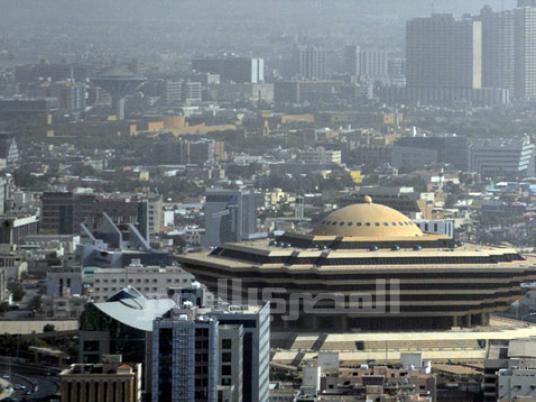
A Saudi economic expert has warned of the economic repercussions of the current political crisis between Egypt and Saudi Arabia.
Economist Fahd bin Jomaa told Al-Arabiya news channel that total investments between the two countries would be affected directly and indirectly. Jomaa said the Egyptian economy, which already suffers from recession and debts, would be particularly hard hit.
Experts estimate that Saudis own over $12 billion in investments in Egypt.
Egyptians began protesting outside the Saudi Embassy in Cairo last week to denounce the detention of Egyptian lawyer and human rights activist Ahmed al-Gizawy in Saudi Arabia on 17 April. Protesters say Gizawy was arrested for his critical views on the kingdom.
Jomaa also said Egyptian labor in Saudi Arabia, which totals 2 million, could be affected one way or another by the crisis.
On Saturday, Saudi Arabia said it had withdrawn its ambassador to Egypt for security reasons after the protests at the embassy. The decision came a week after the country had agreed to grant Egypt US$2.7 billion.
In an attempt to appease mounting tensions, Arab League Secretary General Nabil al-Araby said the current standoff is only a cursory one.
Even though Jomaa projected that Saudi Arabia will not suspend the granting of visas to Egyptians for long, he said the current political crisis may lead national companies and businessmen to focus on non-Egyptian labor for the time being.
He said the Egyptian government should work to contain the crisis, particularly because “a small group that does not represent Egyptians is trying to increase the scope of chaos.”
Even if relations resume, Jomaa predicted that Saudi investments in Egypt would shrink as investors consider the risk involved. Saudi investors in Saudi Arabia will also have second thoughts when considering the stability of labor, he added.
Jomaa also expressed fears that the crisis will have an indirect impact on loans granted by Saudi to Egypt.
The Gizawy case represents a shift in the emergency revolutionary groups in Egypt, who are alarmed by reports of mistreatment of Egyptians in Gulf countries, particularly in conservative Saudi Arabia.
The Saudi ambassador to Cairo said in February that 1,400 Egyptians are currently in Saudi jails.
The kingdom is also alarmed by anti-Saudi sentiments expressed by these revolutionary groups, which accuse Riyadh of acting as a catalyst for the counter-revolution in Egypt.
Saudi Arabia had offered asylum to deposed Tunisian President Zine al-Abidine Ben Ali and also offered refuge to ousted Egyptian leader Hosni Mubarak.
The two counties enjoyed significant political cooperation during Mubarak's reign, as he had the same views as the Saudi regime on Iran's expanded political influence in the region.
Saudi Arabia is a favorite destination for Egyptian workers and professionals, and there are more than 700,000 Saudis living in Egypt.




